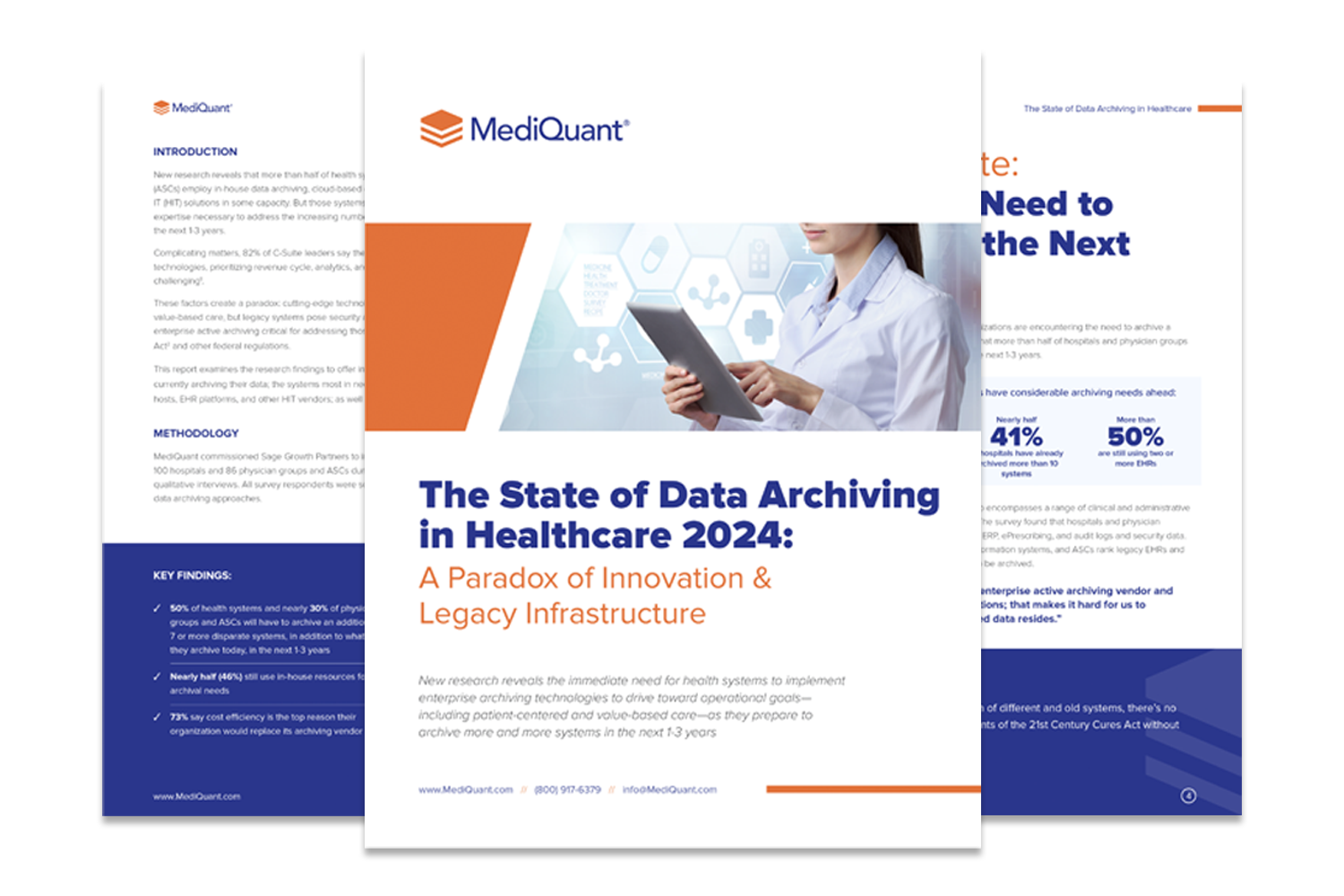After the HITECH Act and its associated incentives pushed providers to adopt EHRs en masse, many would have believed that physicians would be pleased with their EHR systems. However, many clinicians (as many as 39% in a recent survey) are earnestly searching for a new EHR solution.
As soon as a provider selects a new EHR, the next issue to focus on is a successful data conversion. Moving data accurately from one EHR to another can result in serious data mapping problems. The major challenge emanates from extracting data from the old system, transforming it, and loading it into a different format in the new system. That’s why effective data conversion services are highly specialized. They are also critical because clinicians depend on the accuracy of the information converted for effective patient care.
During the transition period from one EHR to another, physicians ask essential questions like, “Will I have quick access to all clinical notes, patient allergies, prescriptions, lab, and radiology test results?” An affirmative answer to this question requires the development of a data conversion process or strategy.
Here are five steps to successful data conversion.
1. Write the Scope of the Healthcare Data Conversion Project
Work with the right stakeholders to define the scope of the conversion project before it kicks off. Let the clinical leadership and appropriate board members or decision-makers identify the legacy data that has to be converted.
Set a boundary between legacy data to move into a data archive and what needs to be extracted and loaded into the new EHR. Also, make a set of critical goals or performance indicators to pursue during and after the conversion project. Examples of goals for the project include:
- Offer comprehensive patient care
- Provide decision support for clinicians
- Boost the productivity of physicians
- Improve the safety of patients and their data
- Guarantee instant access to all historical patient data
- Ensure regulatory compliance for data retention and retrieval
2. Prepare the Vendors for EHR Conversion
Obtain all technical specifications before you start extracting data from the old EHR. Ensure proper documentation by communicating with the legacy system’s vendor.
Also, secure the cooperation of the new EHR vendor for a seamless data conversion process. Don’t leave this until the project gets underway because inadequate database documentation can stall the project and lead to costly delays.
3. Secure a Budgetary Allocation
Identify all the resources needed during the planning phase. Secure the commitment and approval for all the resource needs. Let all key stakeholders know what each project phase requires, from design to validation. A successful data conversion project requires engagement from various teams in the organization.
4. Verify Data Quality
Before you start moving and converting data, discuss the quality of the data in the system you want to retire. Find out if it is okay to remove and leave out the data of deceased or inactive patients.
It may be necessary to avoid any data that will not improve patient care or satisfy any regulatory requirements. Do a de-duplication analysis and verification of all codes. Clean up the data in the legacy system before moving it over.
5. Create a Data Validation Strategy
Using a layered and comprehensive validation strategy ensures that different data users participate in the validation. You will have a more robust validation if you allow these groups to test the data converted:
- The primary IT team
- Leaders of each clinical department
- Selected physicians and nurses
After the conversion, the team must test the data uploaded into the new system rigorously. A field-by-field comparison must be made between the legacy system and the new EHR database. Using a representative sample of the converted records, the IT team will validate the data’s integrity for accuracy and completeness.
Work With a EMR Data Migration Expert
To learn more details about maximizing the effectiveness of converting data from one EHR system to another, connect with the data conversion experts at MediQuant for a free consultation.


